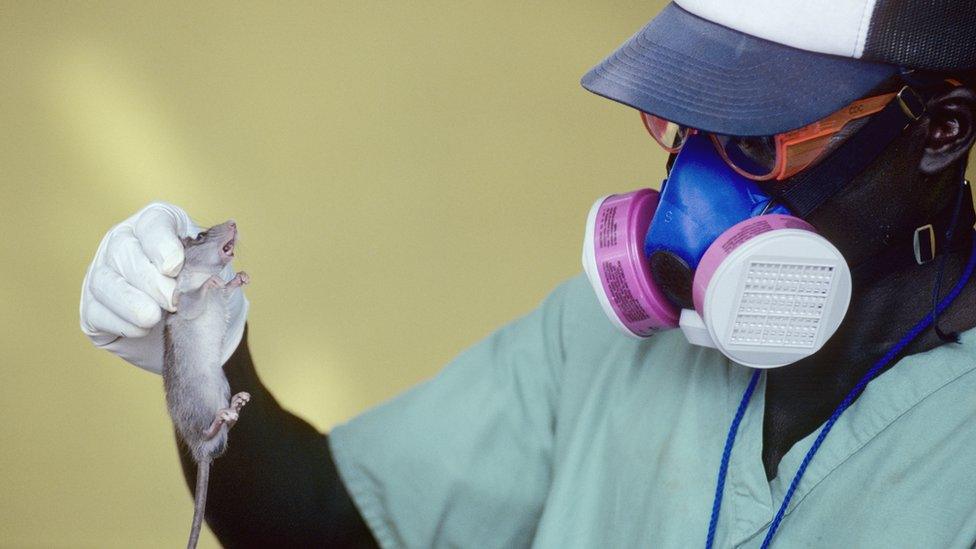Lassa fever: Two confirmed cases of acute virus in East of England
- Published

A health worker in Sierra Leone pictured with a rodent, which can spread the virus to humans by contaminating food or household items
Two people in the East of England have been diagnosed with Lassa fever, an acute viral illness, after travelling to West Africa.
A third "probable case" is also under investigation and being treated at Bedfordshire Hospitals NHS Foundation Trust, the UK Health Security Agency (UKHSA) said.
The agency said the cases were within the same family in the East of England.
Most people make a full recovery but severe cases can be fatal.

One of the confirmed cases will receive specialist treatment at the Royal Free London NHS Foundation Trust
People usually become infected with Lassa virus through exposure to food or household items contaminated with the urine or faeces of infected rats.
The virus can also be spread through infected bodily fluids.
The UKHSA said one of the confirmed cases had recovered and the other would receive specialist care at the Royal Free London NHS Foundation Trust.
The High Consequence Infectious Disease Network was engaged with their ongoing care, it said.


A cousin of Ebola, Lassa fever is endemic in a number of West African countries
What is Lassa fever?
Lassa fever, like Ebola, can be spread through contact with the bodily fluids (blood, saliva, urine or semen) of infected people
Humans can also get it by coming into contact with the urine or faeces of infected rodents that carry the disease
The disease typically causes a fever and flu-like symptoms, but it can cause bleeding through the nose, mouth and other parts of the body
Most people will make a full recovery but the illness can be fatal
Described as a cousin of Ebola, the disease is endemic in a number of West African countries

Dr Susan Hopkins, chief medical advisor at UKHSA, said: "Cases of Lassa fever are rare in the UK and it does not spread easily between people.
"The overall risk to the public is very low.
"We are contacting the individuals who have had close contact with the cases prior to confirmation of their infection, to provide appropriate assessment, support and advice."
Since 1980, there have been eight cases of Lassa fever imported into the UK, with the last two cases occurring in 2009.
The UKHSA said: "There was no evidence of onward transmission from any of these cases."

Find BBC News: East of England on Facebook, external, Instagram, external and Twitter, external. If you have a story suggestion email eastofenglandnews@bbc.co.uk, external
Related topics
- Published25 November 2019

- Published24 November 2019

- Published5 March 2018
